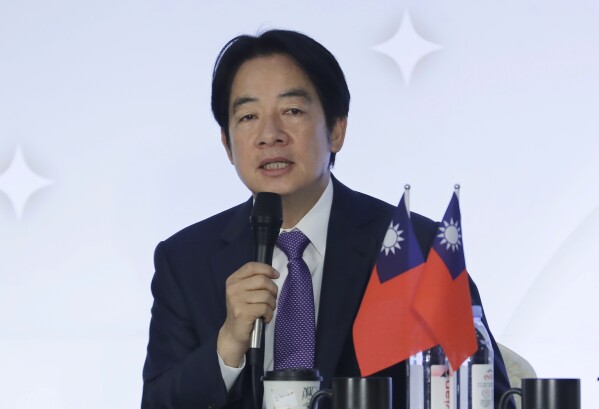In the aftermath of Taiwan’s recent presidential election, the island nation has firmly advised China to “face reality” and respect the democratic choice made by its voters. Despite warnings from Beijing against supporting the pro-sovereignty candidate, Lai Ching-te, Taiwanese voters delivered a resounding victory for him.
Lai, a member of the ruling Democratic Progressive Party (DPP), had vowed to protect the island from China’s perceived “intimidation.” Responding to his election, Beijing emphasized its stance on Taiwan as part of its territory and asserted that the election outcome would not alter the “inevitable trend of China’s reunification.”
In a statement, Taiwan’s Ministry of Foreign Affairs urged Chinese authorities to acknowledge the election results, urging them to “face reality” and cease attempts to suppress Taiwan for positive cross-strait interactions.
The election result has sparked tensions between the two sides, with China considering Lai a dangerous separatist. An unofficial U.S. delegation, dispatched by President Joe Biden’s administration, is set to arrive in Taipei on Sunday, potentially escalating the diplomatic dispute. The delegation, comprising a former U.S. national security adviser and a former deputy secretary of state, plans to engage with various political figures on Monday.
Despite diplomatic pressures from Beijing and frequent incursions by Chinese fighter jets during the campaign, Lai secured a decisive victory over his rival, Hou Yu-ih of the Kuomintang (KMT), with a margin of over 900,000 votes.
In his victory speech, Lai congratulated voters for resisting external influences and expressed a willingness to cooperate with China, emphasizing the importance of maintaining peace and stability. However, he remained steadfast in his commitment to safeguarding Taiwan from perceived threats and intimidation by China.
The election witnessed heightened tensions, marked by warnings from China to Taiwanese voters to make the “correct choice” to avoid moving closer to war. Lai is set to assume office on May 20 alongside his vice-presidential pick, Hsiao Bi-khim, Taiwan’s former representative to the United States, both of whom faced disinformation campaigns during the election that experts linked to China.
While the United States and Britain congratulated Lai on his victory, the European Union welcomed the successful conduct of the election, highlighting the global significance of the developments in Taiwan.


